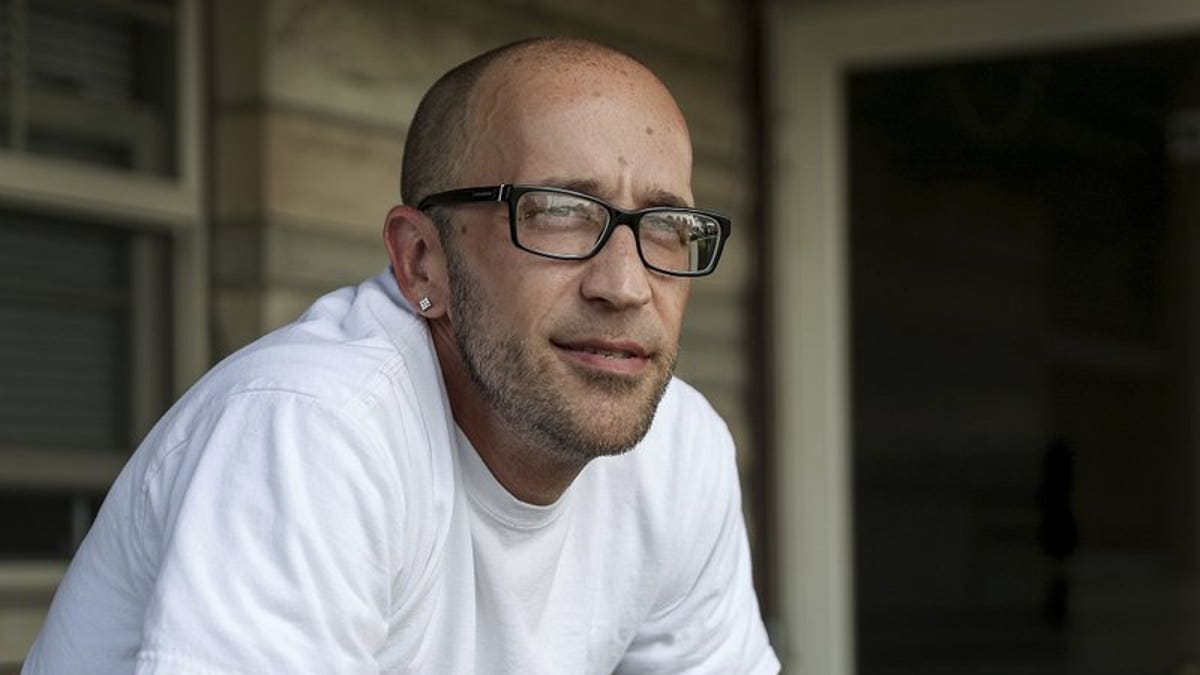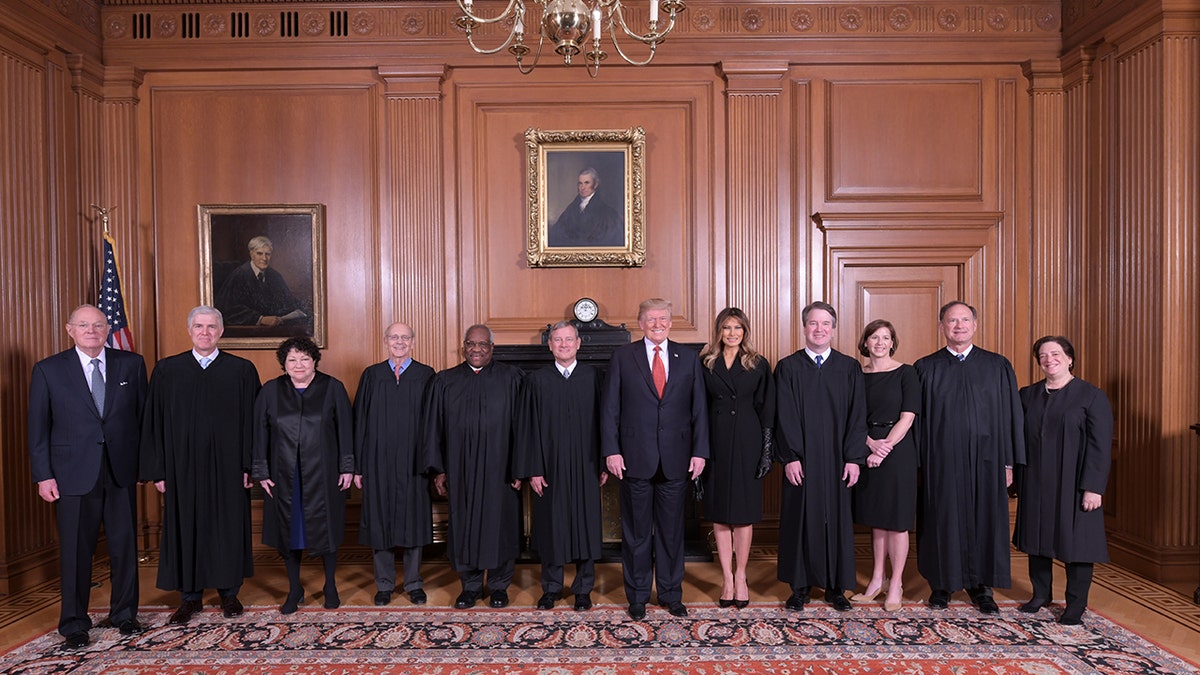
In this Aug. 13, 2018, file photo, Tyson Timbs poses for a portrait at his aunt's home in Marion, Ind. Five years ago, Timbs had his $42,000 Land Rover taken by the government in a process known as "civil asset forfeiture," after he pled guilty to selling $260 of heroin. ((Jenna Watson/The Indianapolis Star via AP))
An Indiana man has gone all the way to the Supreme Court to recover his expensive Land Rover after he was convicted of selling heroin to undercover police officers, claiming the seizure of his vehicle was “excessive.”
Tyson Timbs, 37, was sentenced to a year of home detention and five years of probation in 2015 after he pleaded guilty to the charges. But his 2012 Land Rover LR2, which he used to transport the heroin, was also seized, prompting a years-long legal battle to recover it.
On Wednesday, the fate of his vehicle will be the subject of the Supreme Court, where his legal team will urge the court to decide that the U.S. Constitution’s Eighth Amendment prohibiting “excessive fines” also applies to states. Under Indiana law, the maximum fine for Timbs' crime was $10,000, which is well below the value of the vehicle.
“At first it was about getting my truck back because I was mad, and I wanted my stuff back. Now it’s a lot different,” said Timbs. “I was curious to see how often they did this to people. They do it a lot around here, and apparently it’s done all over the country.”
"At first it was about getting my truck back because I was mad, and I wanted my stuff back. Now it’s a lot different."
Timbs reportedly bought the vehicle for $42,000 after receiving more than $70,000 from a life insurance pay-out after his father’s death in 2012. But the money soon dried up and Timbs turned to both using and selling heroin.
“A drug addict shouldn’t have a whole lot of money. That’s not a good idea,” he said.
On his third attempt to sell the drugs, he was pulled over by authorities and arrested. As part of the arrest, the state of Indiana used civil forfeiture laws to take away his expensive car.
Since the legal troubles, Timbs entered rehab and has not used drugs for three years, he told the Washington Examiner.
“I've started to live like a regular human being should for the most part,” he said. “I’m finally able to start looking forward to planning the rest of my life, hopefully get married in the next year or two. Things have been really good.”

President Trump and Melania Trump pose with members of the Supreme Court, from left to right, retired Justice Anthony M. Kennedy, Associate Justices Neil M. Gorsuch, Sonia Sotomayor, Stephen G. Breyer, Clarence Thomas, Chief Justice John G. Roberts, Jr., Associate Justice Brett M. Kavanaugh, his wife Ashley Kavanaugh, Associate Justices Samuel A. Alito, Jr. and Elena Kagan.
His case has been backed by liberal and conservative groups alike, including the Americans for Prosperity and the Southern Poverty Law Center, who long warned that states often impose extreme fines for relatively small crimes.
As the evidence of a broken system, the groups cite examples including a Georgia man who was sentenced to pay $360 a month while on probation, despite his crime being a theft of a $2 can of beer, or the case of a Michigan man, who owed less than $9 in property taxes to the state government, yet his property was auctioned off for $24,500, according to the USA Today.
Wesley Hottot, Timbs’ lawyer at the libertarian public interest law firm Institute for Justice, said prosecutors and police have an incentive to use civil forfeiture to take property from people who have been arrested, even if they haven’t yet been convicted.
“Civil forfeiture is one of the greatest threats to property rights today,” Hottot said.
Timbs’ case will be presented on Wednesday, but the actual ruling is expected sometime next summer. He told the newspaper that he never expected to “get this far” with the legal action.
The Associated Press contributed to this report.
